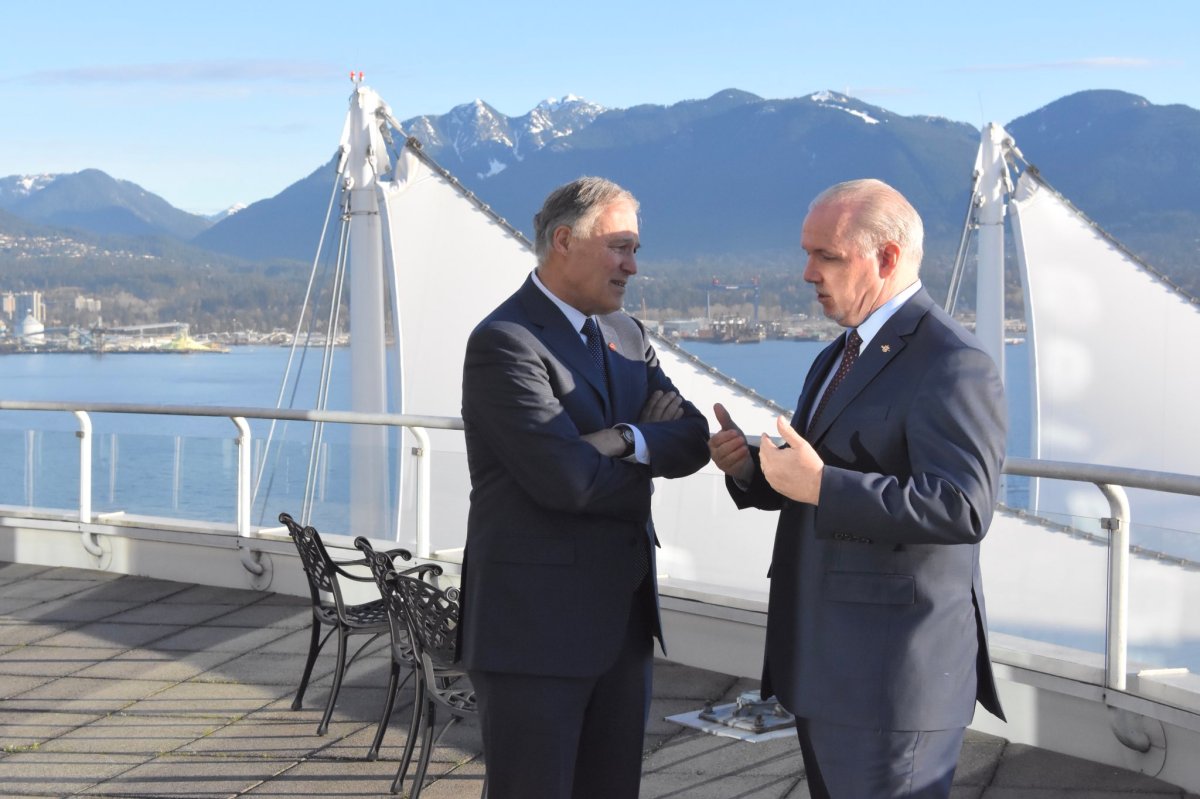British Columbia has a major political ally on board in the fight against the Trans Mountain pipeline. Washington Governor Jay Inslee, rumoured to be a potential Democratic presidential candidate in 2020, is pledging to do what he can to support B.C.’s push to stop an increase in bitumen flow to the west coast.

“We in Washington are very appreciative of the leadership your premier is taking on this issue,” said Inslee, answering questions from reporters in Vancouver. “We have serious questions about whether it really makes sense to be making such significant investments in fossil fuel infrastructure given the fact we know we need to wean ourselves off carbon based fuels.”
Inslee is in Vancouver on Friday for meetings as part of the Pacific Coast Collaborative. The Washington governor said his state is also looking at new laws that could reduce the risk associated with increased tanker traffic. Inslee mentioned his state is looking at requirement tankers to be escorted by tugboats, creating limitations of operations or restrictions on the noise of tankers to protect the orca population.
“We are examining right now, and I have tasked my administration to scrub and look at, any possible marine safety provisions that we could enact by law,” said Inslee. “Now, there are some challenges with dead weight from the federal government.”
Washington is particularly concerned about damage to Haro Strait and the Strait of Juan de Fuca. Inslee’s government rejected an oil port in Vancouver, Washington, but the state still has five oil refineries.

Get breaking National news
British Columbia is preparing a legal reference case to get a court to decide whether the province has the right to restrict the flow of bitumen by rail or pipeline through the province. The pipeline opposition has led to an ongoing feud with the Alberta government that has prompted Alberta Premier Rachel Notley to threaten to turn the oil and has taps off to B.C.
“Working together on the west coast, I think we are demonstrating to the rest of North America the commonalities we have,” said Horgan. “Working together, the people who populate this speculator region have a common purpose which is to ensure our environment is protected so our economy can thrive.”








Comments